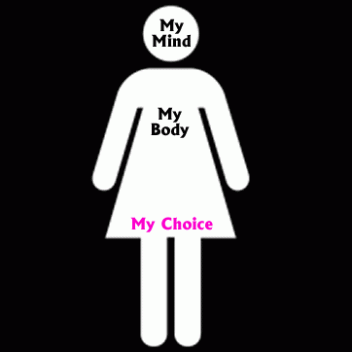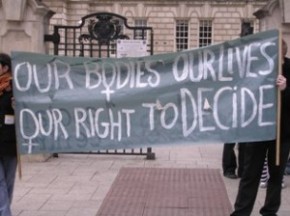The two little girls in my life are more precious than anything else I have accomplished so far. My daughters are precious to me and to my family, however, I was privileged enough to have a supportive and stable partner, to have the financial means of raising a child and to have a strong support system surrounding me. More importantly, the choice of having a child was MY choice, not anyone else’s. Every woman should have the right to choose what is best for her body, for her well-being and for her life.
Being pro-choice is about caring for other women enough that we provide them with options and resources so they don’t have to be put into precarious situations. There are a few reasons why being pro-choice is safer. First, laws against abortion do not stop abortion; they simply make it less safe. Death due to complications of abortion account for about 13% of all deaths during pregnancy and childbirth, and almost all of those happen in countries where the procedure is illegal. Making abortion illegal doesn’t save any babies, it just kills women (source.)
Second, reproductive choice can be the only thing that stands between a woman and poverty. There is a reason that the 1 billion poorest people on the planet are female. In sub-Saharan Africa and west Asia, women typically have five to six children, which leaves them powerless to provide for not only their own families, but themselves (source.)
Third, without publicly funded contraceptive services, there would be 40% more abortions each year in the US. The rate among teens would increase by 58%. The teen birth rate and births to unmarried women would both increase by about 25%. Also, low-income and minority women who do not want to become pregnant are twice as likely as other women to be non-users of contraceptives (source.) *Note: American statistics were used because no comparable Canadian stats could be found.
At Nellie’s, we recognize that the control of women’s sexuality is another facet of the oppression they face. Sexual and Reproductive Health Awareness Week is an opportunity to educate and empower women to take charge of their own sexuality and their own lives. Please join us in empowering our sisters, our mothers, our daughters and all of the other women in our lives.
*written by Nellie’s Social Justice Committee member.





